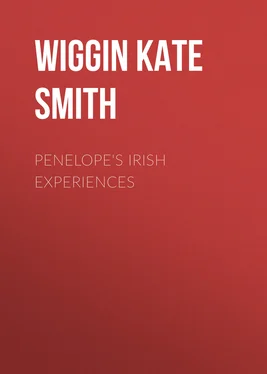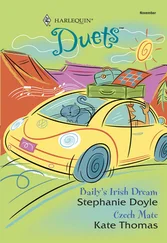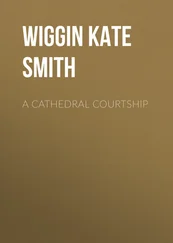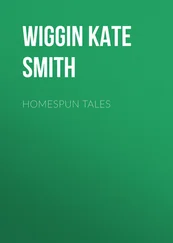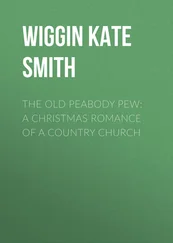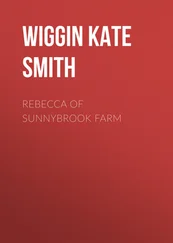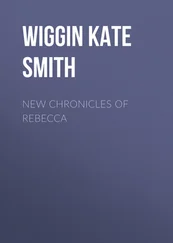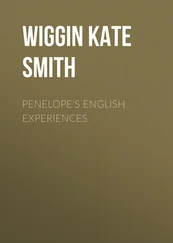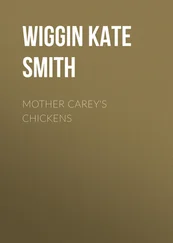Kate Wiggin - Penelope's Irish Experiences
Здесь есть возможность читать онлайн «Kate Wiggin - Penelope's Irish Experiences» — ознакомительный отрывок электронной книги совершенно бесплатно, а после прочтения отрывка купить полную версию. В некоторых случаях можно слушать аудио, скачать через торрент в формате fb2 и присутствует краткое содержание. Издательство: Иностранный паблик, Жанр: foreign_prose, foreign_antique, на английском языке. Описание произведения, (предисловие) а так же отзывы посетителей доступны на портале библиотеки ЛибКат.
- Название:Penelope's Irish Experiences
- Автор:
- Издательство:Иностранный паблик
- Жанр:
- Год:неизвестен
- ISBN:нет данных
- Рейтинг книги:3 / 5. Голосов: 1
-
Избранное:Добавить в избранное
- Отзывы:
-
Ваша оценка:
- 60
- 1
- 2
- 3
- 4
- 5
Penelope's Irish Experiences: краткое содержание, описание и аннотация
Предлагаем к чтению аннотацию, описание, краткое содержание или предисловие (зависит от того, что написал сам автор книги «Penelope's Irish Experiences»). Если вы не нашли необходимую информацию о книге — напишите в комментариях, мы постараемся отыскать её.
Penelope's Irish Experiences — читать онлайн ознакомительный отрывок
Ниже представлен текст книги, разбитый по страницам. Система сохранения места последней прочитанной страницы, позволяет с удобством читать онлайн бесплатно книгу «Penelope's Irish Experiences», без необходимости каждый раз заново искать на чём Вы остановились. Поставьте закладку, и сможете в любой момент перейти на страницу, на которой закончили чтение.
Интервал:
Закладка:
“I refuse to remember their relationships or alliances,” said Francesca. “They were always intermarrying with their foes in order to gain strength, but it generally seems to have made things worse rather than better; still I don’t mind hearing what became of Brian after his victory; let us quite finish with him before the eggs come up. I suppose it will be eggs?”
“Broder the Viking rushed upon him in his tent where he was praying, cleft his head from his body, and he is buried in Armagh Cathedral,” said Salemina, closing the book. “Penelope, do ring again for breakfast, and just to keep us from realising our hunger read ‘Remember the Glories of Brian the Brave.’”
We had brought letters of introduction to a dean, a bishop, and a Rt. Hon. Lord Justice, so there were a few delightful invitations when the morning post came up; not so many as there might have been, perhaps, had not the Irish capital been in a state of complete dementia over the presence of the greatest Queen in the world. 1 1 Penelope’s experiences in Scotland, given in a former volume, ended, the meticulous proof-reader will remember, with her marriage in the year of the Queen’s Jubilee. It is apparent in the opening chapters of this story that Penelope came to Ireland the following spring, which, though the matter is hardly important, was not that of the Queen’s memorable visit. The Irish experiences are probably the fruit of several expeditions, and Penelope has chosen to include this vivid impression of Her Majesty’s welcome to Ireland, even though it might convict her of an anachronism. Perhaps as this is not an historical novel, but a ‘chronicle of small beer,’ the trifling inaccuracy may be pardoned.—K. D. W.
Privately, I think that those nations in the habit of having kings and queens at all should have four, like those in a pack of cards; then they could manage to give all their colonies and dependencies a frequent sight of royalty, and prevent much excitement and heart-burning.
It was worth something to be one of the lunatic populace when the little lady in black, with her parasol bordered in silver shamrocks, drove along the gaily decorated streets, for the Irish, it seems to me, desire nothing better than to be loyal, if any persons to whom they can be loyal are presented to them.
“Irish disaffection is, after all, but skin-deep,” said our friend the dean; “it is a cutaneous malady, produced by external irritants. Below the surface there is a deep spring of personal loyalty, which needs only a touch like that of the prophet’s wand to enable it to gush forth in healing floods. Her Majesty might drive through these crowded streets in her donkey chaise unguarded, as secure as the lady in that poem of Moore’s which portrayed the safety of women in Brian Boru’s time. The old song has taken on a new meaning. It begins, you know,—
‘Lady, dost thou not fear to stray
So lone and lonely through this dark way?’
and the Queen might answer as did the heroine,
‘Sir Knight, I feel not the least alarm,
No son of Erin will offer me harm.’”
It was small use for the parliamentary misrepresentatives to advise treating Victoria of the Good Deeds with the courtesy due to a foreign sovereign visiting the country. Under the miles of flags she drove, red, white, and blue, tossing themselves in the sweet spring air, and up from the warm hearts of the surging masses of people, men and women alike, Crimean soldiers and old crones in rags, gentry and peasants, went a greeting I never before heard given to any sovereign, for it was a sigh of infinite content that trembled on the lips and then broke into a deep sob, as a knot of Trinity College students in a spontaneous burst of song flung out the last verse of ‘The New Wearing of the Green.’ 2 2 Alfred Perceval Graves.
‘And so upon St. Patrick’s Day, Victoria, she has said
Each Irish regiment shall wear the Green beside the Red;
And she’s coming to ould Ireland, who away so long has been,
And dear knows but into Dublin she’ll ride Wearing of the Green.’
The first cheers were faint and broken, and the emotion that quivered on every face and the tears that gleamed in a thousand eyes made it the most touching spectacle in the world. ‘Foreign Sovereign, indeed!’ She was the Queen of Ireland, and the nation of courtiers and hero worshippers was at her feet. There was the history of five hundred years in that greeting, and to me it spoke volumes.
Plenty of people there were in the crowd, too, who were heartily ‘agin the Government’; but Daniel O’Connell is not the only Irishman who could combine a detestation of the Imperial Parliament with a passionate loyalty to the sovereign.
There was a woman near us who ‘remimbered the last time Her Noble Highness come, thirty-nine years back,—glory be to God, thim was the times!’—and who kept ejaculating, “She’s the best woman in the wurrld, bar none, and the most varchous faymale!” As her husband made no reply, she was obliged in her excitement to thump him with her umbrella and repeat, “The most varchous faymale, do you hear?” At which he retorted, “Have conduct, woman; sure I’ve nothin’ agin it.”
“Look at the size of her now,” she went on, “sittin’ in that grand carriage, no bigger than me own Kitty, and always in the black, the darlin’. Look at her, a widdy woman, raring that large and heavy family of children; and how well she’s married off her daughters (more luck to her!), though to be sure they must have been well fortuned! They do be sayin’ she’s come over because she’s plazed with seein’ estated gintlemen lave iverything and go out and be shot by thim bloody Boers, bad scran to thim! Sure if I had the sons, sorra a wan but I’d lave go! Who’s the iligant sojers in the silver stays, Thady? Is it the Life Guards you’re callin’ thim?”
There were two soldiers’ wives standing on the pavement near us, and one of them showed a half-sovereign to the other, saying, “‘Tis the last day’s airnin’ iver I seen by him, Mrs. Muldoon, ma’am! Ah, there’s thim says for this war, an’ there’s thim says agin this war, but Heaven lave Himself where he is, I says, for of all the ragin’ Turcomaniacs iver a misfortunate woman was curst with, Pat Brady, my full private, he bates ‘em all!”
Here the band played ‘Come back to Erin,’ and the scene was indescribable. Nothing could have induced me to witness it had I realised what it was to be, for I wept at Holyrood when I heard the plaintive strains of ‘Bonnie Charlie’s noo Awa’ floating up to the Gallery of Kings from the palace courtyard, and I did not wish Francesca to see me shedding national, political, and historical tears so soon again. Francesca herself is so ardent a republican that she weeps only for presidents and cabinet officers. For my part, although I am thoroughly loyal, I cannot become sufficiently attached to a president in four years to shed tears when I see him driving at the head of a procession.
Chapter VI. Dublin, then and now
‘I found in Innisfail the fair,
In Ireland, while in exile there,
Women of worth, both grave and gay men,
Many clerics, and many laymen.’
Mrs. Delany, writing from Dublin in 1731, says: ‘As for the generality of people that I meet with here, they are much the same as in England—a mixture of good and bad. All that I have met with behave themselves very decently according to their rank; now and then an oddity breaks out, but never so extraordinary but that I can match it in England. There is a heartiness among them that is more like Cornwall than any I have known, and great sociableness.’ This picturesque figure in the life of her day gives charming pictures in her memoirs of the Irish society of the time, descriptions which are confirmed by contemporary writers. She was the wife of Dr. Delany, Dean of Down, the companion of duchesses and queens, and the friend of Swift. Hannah More, in a poem called ‘Sensibility,’ published in 1778, gives this quaint and stilted picture of her:—
Читать дальшеИнтервал:
Закладка:
Похожие книги на «Penelope's Irish Experiences»
Представляем Вашему вниманию похожие книги на «Penelope's Irish Experiences» списком для выбора. Мы отобрали схожую по названию и смыслу литературу в надежде предоставить читателям больше вариантов отыскать новые, интересные, ещё непрочитанные произведения.
Обсуждение, отзывы о книге «Penelope's Irish Experiences» и просто собственные мнения читателей. Оставьте ваши комментарии, напишите, что Вы думаете о произведении, его смысле или главных героях. Укажите что конкретно понравилось, а что нет, и почему Вы так считаете.
